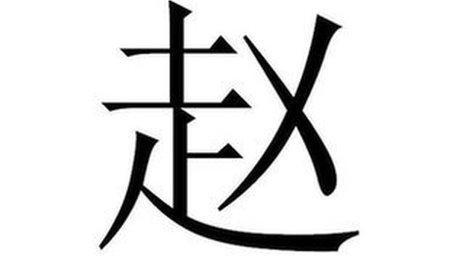Chinese ex-online tsar Lu Wei charged with bribery
- Published
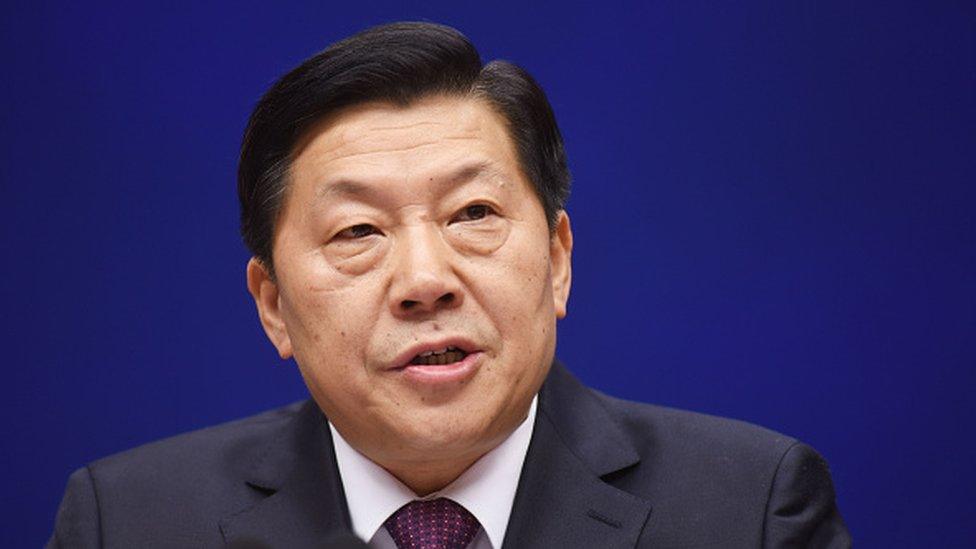
Lu Wei was once believed to be one of President Xi Jinping's inner circle but was detained in November
China's former chief of internet regulation, Lu Wei, has been charged with taking bribes.
He is accused of taking advantage of his position to reap monetary and property gain, the official Xinhua News Agency, external reports.
Mr Lu was once one of China's most senior officials, overseeing the department of online media regulation.
His role as China's "internet tsar" meant he was once listed as one of Time Magazine's 100 Most Influential People, external.
Mr Lu has been prosecuted for "taking advantage of his own positions and using other officials to seek profits for others as well as accepting a huge amount of money and property", Xinhua said.
'Arbitrary and tyrannical'
Lu Wei was once touted as a key ally of President Xi Jinping, with media noting that he rose quickly through the ranks at the beginning of the president's 2012 tenure.
The former Xinhua News Agency vice-president was once director of China's publicity department - the main regulator of government propaganda, and vice-mayor of the Beijing municipality.
With the expansion of online media, he became head of the Cyberspace Administration of China in August 2013, a new department set up to supervise online content and handle the approval of online news reporting.
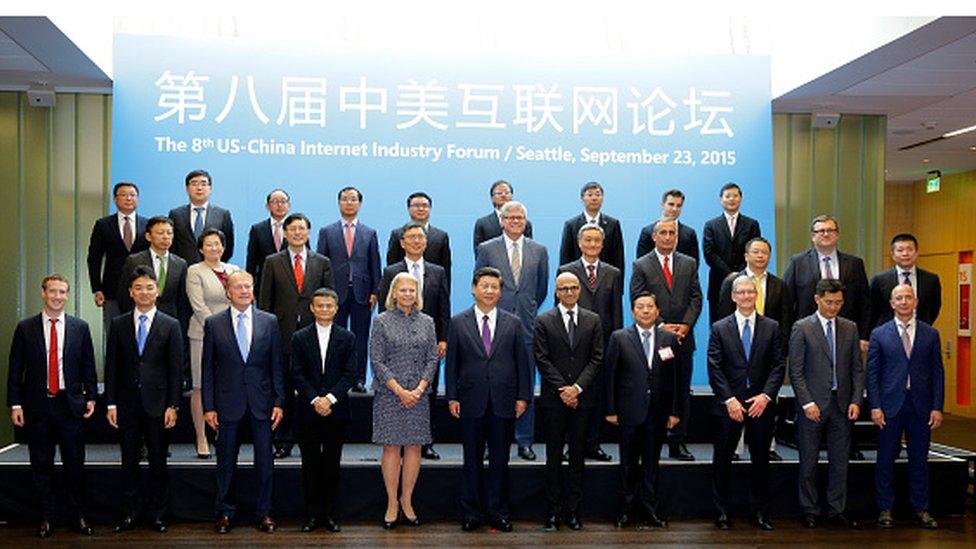
Mr Lu (fourth from right, front row) was regarded as "the gatekeeper" to China's internet
However, he was suddenly replaced as head of the online regulator in June 2016 by Xu Lin.
The Xinhua News Agency gave no official explanation for his departure, simply saying that "he will no longer serve as director".
China was silent on Mr Lu's fate for more than a year, until its anti-corruption agency announced in November 2017 that he had been detained amid an internal corruption probe, adding that he was "arbitrary and tyrannical".
In February 2018, external, state media added that he had been expelled from the Communist Party and dismissed from public office "for multiple offences including taking bribes".
During his role as "internet tsar", Mr Lu instigated many tight controls over China's internet.
He strengthened the censorship of overseas media, introduced criminal charges against people who re-posted content the government had banned, and also took steps to punish a number of prominent and outspoken online figures, including Pan Shiyi and Ren Zhiqiang.
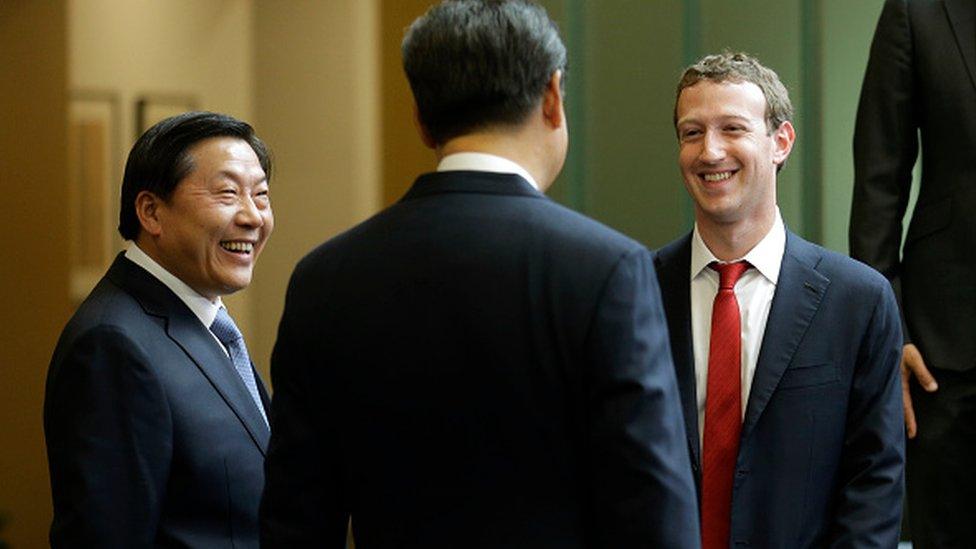
Mr Lu was "courted by the world's most prominent", including Facebook CEO Mark Zuckerberg
Mr Lu's role as the effective "gatekeeper of China's internet" meant that he was "courted by the world's most prominent", according to Hong Kong newspaper, the South China Morning Post, external.
In 2014, he made headlines after travelling to Silicon Valley for a number of key meetings with Apple, Facebook and eBay, with many papers particularly noting Facebook chief Mark Zuckerberg's efforts to impress him, in an attempt to bring Facebook to the mainland Chinese market.
What are Chinese media saying?
Although many English-language papers highlight Mr Lu's former key role, media in mainland China are playing down his prosecution.
Many official media highlight that he was "deputy minister of the publicity department", rather than highlight his important online watchdog role.
The official broadcaster CCTV does not give prominence to Mr Lu's prosecution, but instead mentions that the Supreme People's Procuratorate has filed a public prosecution order against three officials, of whom Mr Lu is one.
Very few social media comments are available, and it is appears that government censors are removing posts.
BBC Monitoring, external reports and analyses news from TV, radio, web and print media around the world. You can follow BBC Monitoring on Twitter, external and Facebook, external.
- Published6 December 2017
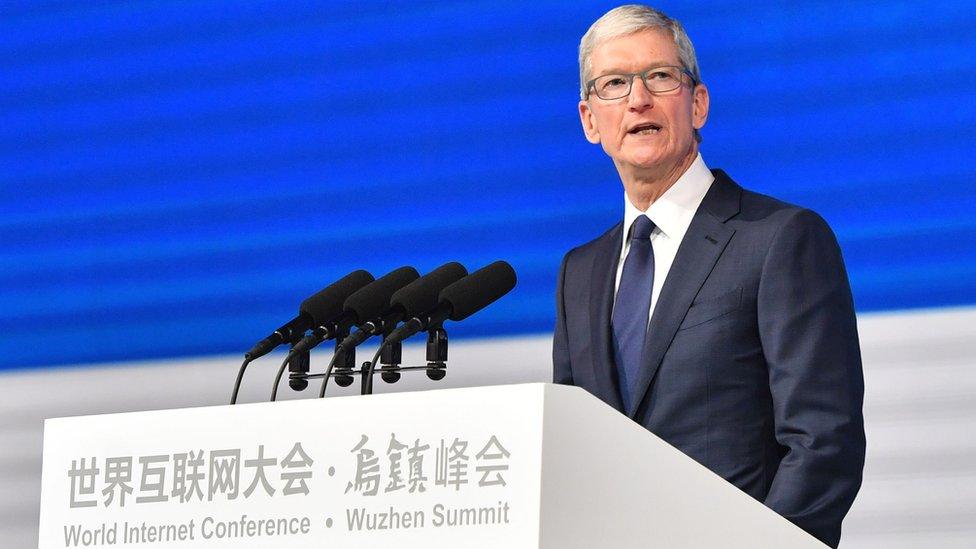
- Published5 January 2016
